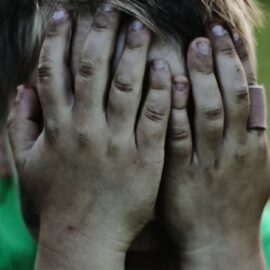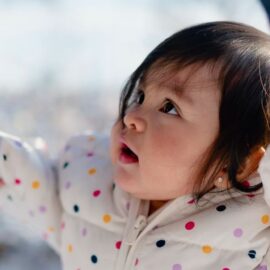

This article is an excerpt from the Shortform book guide to "Attached" by Amir Levine and Rachel Heller. Shortform has the world's best summaries and analyses of books you should be reading.
Like this article? Sign up for a free trial here .
Do your experiences with childhood attachment affect your attachment style as an adult? What other factors contribute to your adult attachment style?
Psychologists used to believe that your adult attachment style was a direct reflection of your childhood attachment to your parents. However, studies now show that childhood attachment is only one piece of the puzzle.
Keep reading to learn why your childhood attachment style doesn’t always follow you to adulthood.
Childhood Attachment Versus Adult Attachment
Researchers once assumed that your adult attachment style—how you interact with a romantic partner—was the result of your relationship with your parents during your youngest years. They saw adult romantic relationships as a mirror of childhood attachment experiences:
- If your parents were available, responsive, and sensitive to your needs, you would have a secure attachment style. Children who enjoy this kind of parenting learn that it’s fine to rely on others; they’re confident that other people will be available when needed.
- If your parents were inconsistent in their availability and responsiveness, you would have an anxious attachment style.
- If your parents were distant and unresponsive, you would have an avoidant attachment style.
Over time, however, attachment theory has developed greater complexity. How your parents cared for you as an infant still matters, but it’s only one of several factors. Other childhood conditions also have an impact, such as:
- Whether or not you were born with a mellow temperament (making it easier for your parents and other people to love and care for you).
- Whether your parents were stressed out or well-adjusted.
- Whether or not you spent much time with caretakers who were not your parents.
Parenting Is Only One Contributor to Attachment Styles
While it’s true that children of parents who are sensitive to their needs are more likely to have a secure attachment style in their young years, when we look ahead 20 or 30 years to see what that child is like as an adult, the link is much weaker. Increasing evidence shows there’s no single source that contributes to our attachment styles. Instead, it’s a mosaic of factors that includes our early relationship with our parents, our adult romantic experiences, and possibly even our DNA.
The research: About 70 to 75 percent of adults remain in the same attachment style category throughout their lives, whereas the remaining 25 to 30 percent shift attachment styles at some point in adulthood. The change seems to be influenced by adult romantic relationships—healthy or unhealthy, good or bad—that are compelling enough to alter our basic beliefs about connectedness.
In other words, under the right conditions in the right relationship, anxious or avoidant attachers can become secure attachers. Of course, the flip side is also true—in the wrong relationship, secure attachers can become anxious or avoidant.
DNA’s Role in Attachment
Some research points to the idea that attachment styles may be strongly linked to DNA. For example, scientists at the University of Kansas have found that a specific dopamine receptor is associated with the anxious attachment style and another receptor is associated with the avoidant attachment style. These two genes play an important role in brain functions like emotional control and social behavior.

———End of Preview———
Like what you just read? Read the rest of the world's best book summary and analysis of Amir Levine and Rachel Heller's "Attached" at Shortform .
Here's what you'll find in our full Attached summary :
- Why your partner behaves the way they do
- How your attachment style affects your relationship
- How to distance yourself from unhealthy relationships






